Questionhi my friend brought me a baby octopus and it is in a little carrying case with some water.i can not go to the pet store to buy "salt". they are closed today.they did say that i could use sea salt from the store but they did not tell me how to mix it. could you please help?
AnswerHi Taime,
Please note: It is not impossible to keep a Squid or Octopus as a pet; however this is not an animal one should obtain or try to keep, unless they know exactly how to care for them.
Please note: Cephalopods are extremely delicate to care for, and should be left to the expert hobbyist only.
Regarding the aquarium, water parameters must be perfect to keep these short lived animals; therefore you would need to place this animal in an appropriately sized pre-existing pre-set up aquarium, which includes water that has already been acclimated and tested accordingly.
My recommendation is: If you live near the ocean, where this animal was originally captured, you should release it.
Regarding store salt: It is not recommended at all to use sea salt from a market store. Typically these salts contain preservatives and silicates, which help give the product a better shelf life.
If this is an emergency in trying to keep this animal alive, you should obtain water from the ocean; bringing it to the temperature of the water the animal is currently in, before releasing it into the aquarium.
In the future, for your other aquarium projects, most aquarium sea salt is mixed in 1/2 cup amounts to make 1 gallon of saltwater.
HERE IS SOME EXTENDED INFORMATION ON THE CARE OF OCTOPUS FOR AQUARIUM KEEPING:
The body of the Octopus is covered with chromatophores that allow it to blend in with any background by changing color. Unlike most animals, the Octopus has a rectangular pupil. It usually comes out at night to feed on small invertebrates or sleeping fish. It uses its eight tentacles to bring the catch to its beak-like mouth. Of its total length, the arms will represent about 80%, with the body comprising the rest.
The Octopus will do best in an aquarium if provided with plenty of live rock and ample hiding places and a large area in which to move. It prefers an aquarium with caves and medium to coarse substrate with low lighting levels. The ideal lighting for this aquarium is dim actinic lighting.
The Octopus can be surprisingly strong, so in the home aquarium, it is best to anchor the rocks, or even glue them together to keep the Octopus from toppling the rocks into the glass or onto itself. Cover all tank openings very well or it will try to escape. The Octopus is sensitive to high levels of nitrates and copper-based medications. It can be very difficult to acclimate into a new environment.
Always approach the Octopus slowly to avoid causing it to release its ink cloud in defense. In the aquarium, this release of ink will necessitate a large water change to avoid its death.
It is an extremely difficult species to breed in an aquarium.
The Octopus can be fed shrimp and mussel meat. It will also eat live crayfish and feeder shrimp. Any live foods should be fed spirulina based dry foods, plankton, and krill to enhance their nutritional value. This is known as gut-loading.
Taime, Good luck with all your saltwater aquarium endeavors.
Regards,
Dave
All Experts - Editor
http://www.ocreef.com - Director

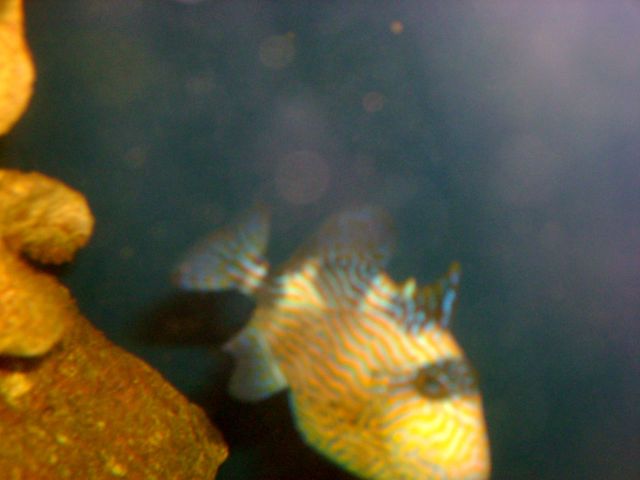 blue line trigger fish
Question
blueline triggerfish
is there any way to tell
blue line trigger fish
Question
blueline triggerfish
is there any way to tell
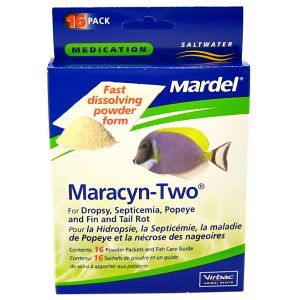 my clownfish have white nungus
Questionhi had 4 clown fish and two died they are havin
my clownfish have white nungus
Questionhi had 4 clown fish and two died they are havin
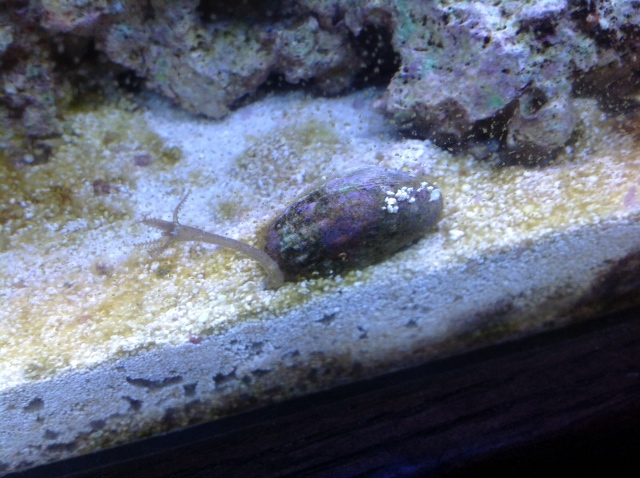 Unknown creature.
QuestionUnknown creature
Unknown creature
Unknown creature.
QuestionUnknown creature
Unknown creature
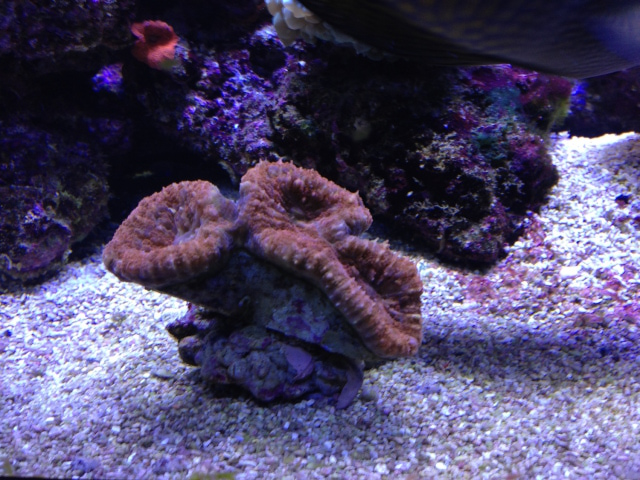 Button coral and Lobophyllia retracted
Question
Lobophyllia Button coral
Hi
I ha
Button coral and Lobophyllia retracted
Question
Lobophyllia Button coral
Hi
I ha
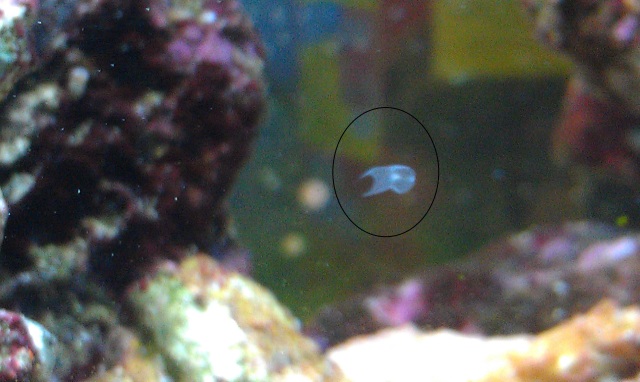 unknown creature
Question
unknow creature
I found these creatures
unknown creature
Question
unknow creature
I found these creatures